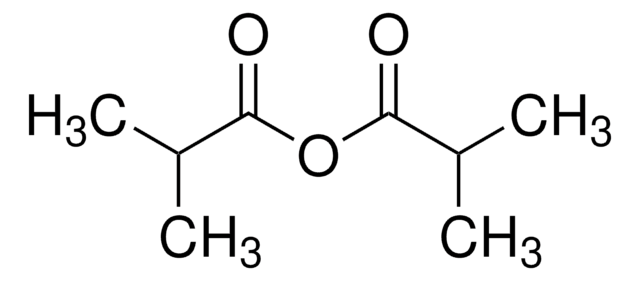308269
2-Methoxyethyl acetate
suitable for HPLC, ≥99%
Synonim(y):
1-Acetoxy-2-methoxyethane, Ethylene glycol monomethyl ether acetate, Methyl Cellosolve® acetate
About This Item
Polecane produkty
Próba
≥99%
Postać
liquid
oczyszczone przez
glass distillation
granice wybuchowości
0.34-6.3 %
metody
HPLC: suitable
zanieczyszczenia
<0.050% water
pozostałość po odparowaniu
<0.0005%
współczynnik refrakcji
n20/D 1.402 (lit.)
tw
145 °C (lit.)
mp
−65 °C (lit.)
gęstość
1.009 g/mL at 25 °C (lit.)
λ
H2O reference
absorpcja UV
λ: 254 nm Amax: 1.00
λ: 275 nm Amax: 0.15
λ: 300 nm Amax: 0.05
λ: 350-400 nm Amax: 0.01
Zastosowanie
food and beverages
ciąg SMILES
COCCOC(C)=O
InChI
1S/C5H10O3/c1-5(6)8-4-3-7-2/h3-4H2,1-2H3
Klucz InChI
XLLIQLLCWZCATF-UHFFFAOYSA-N
Szukasz podobnych produktów? Odwiedź Przewodnik dotyczący porównywania produktów
Powiązane kategorie
Hasło ostrzegawcze
Danger
Zwroty wskazujące rodzaj zagrożenia
Zwroty wskazujące środki ostrożności
Klasyfikacja zagrożeń
Acute Tox. 4 Dermal - Acute Tox. 4 Inhalation - Acute Tox. 4 Oral - Flam. Liq. 3 - Repr. 1B
Kod klasy składowania
3 - Flammable liquids
Klasa zagrożenia wodnego (WGK)
WGK 1
Temperatura zapłonu (°F)
114.8 °F - closed cup
Temperatura zapłonu (°C)
46 °C - closed cup
Certyfikaty analizy (CoA)
Poszukaj Certyfikaty analizy (CoA), wpisując numer partii/serii produktów. Numery serii i partii można znaleźć na etykiecie produktu po słowach „seria” lub „partia”.
Masz już ten produkt?
Dokumenty związane z niedawno zakupionymi produktami zostały zamieszczone w Bibliotece dokumentów.
Nasz zespół naukowców ma doświadczenie we wszystkich obszarach badań, w tym w naukach przyrodniczych, materiałoznawstwie, syntezie chemicznej, chromatografii, analityce i wielu innych dziedzinach.
Skontaktuj się z zespołem ds. pomocy technicznej











